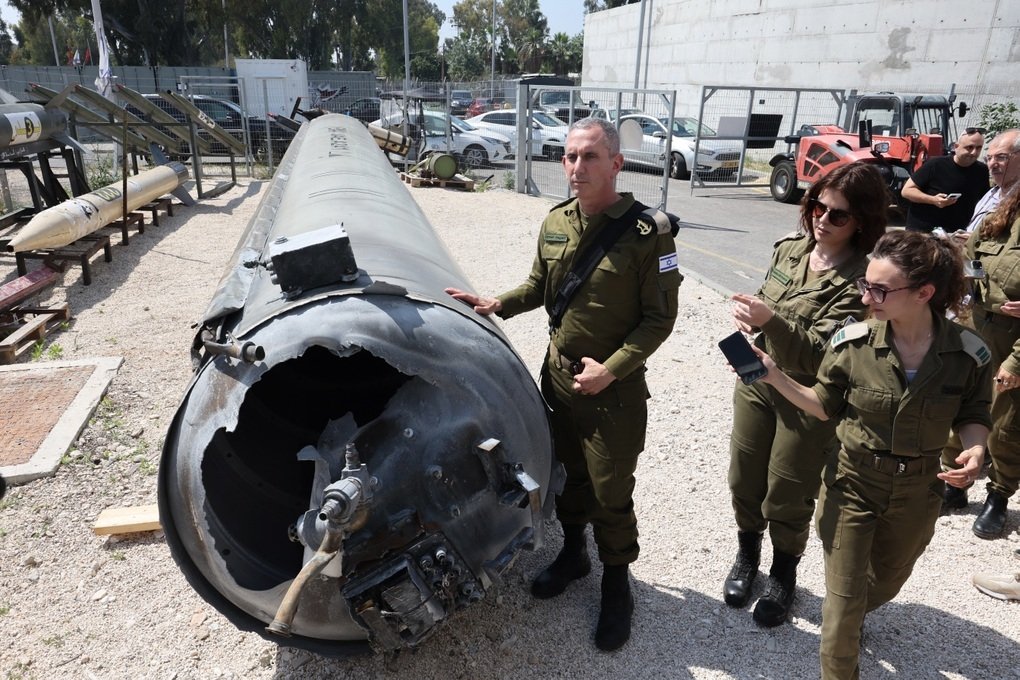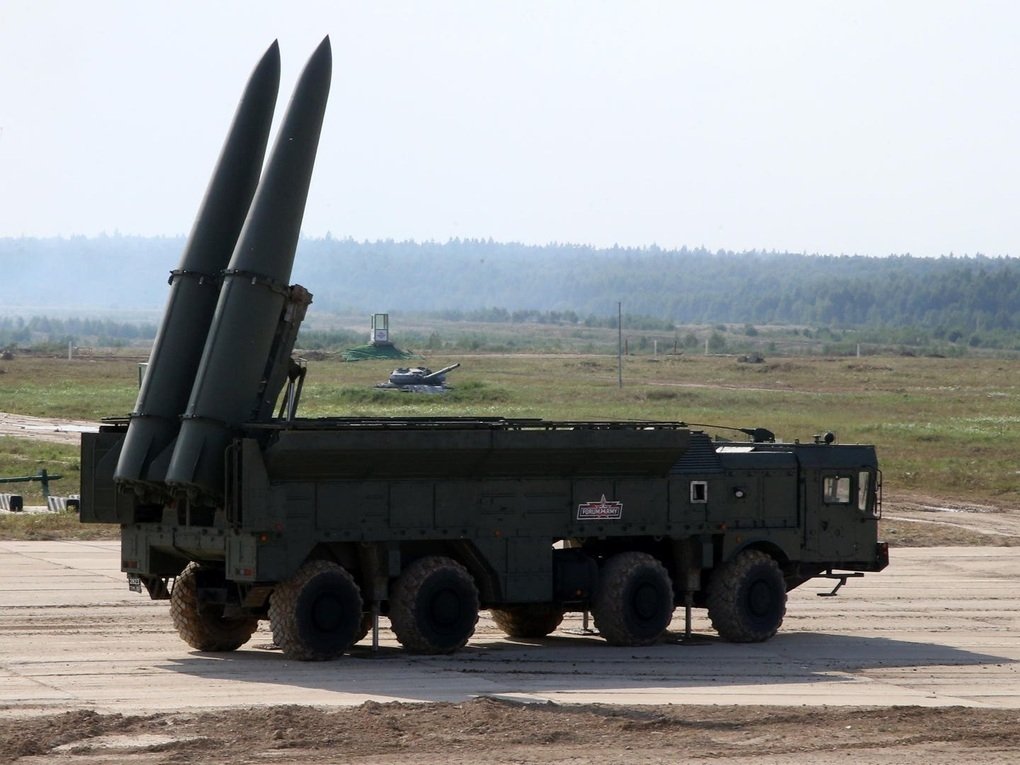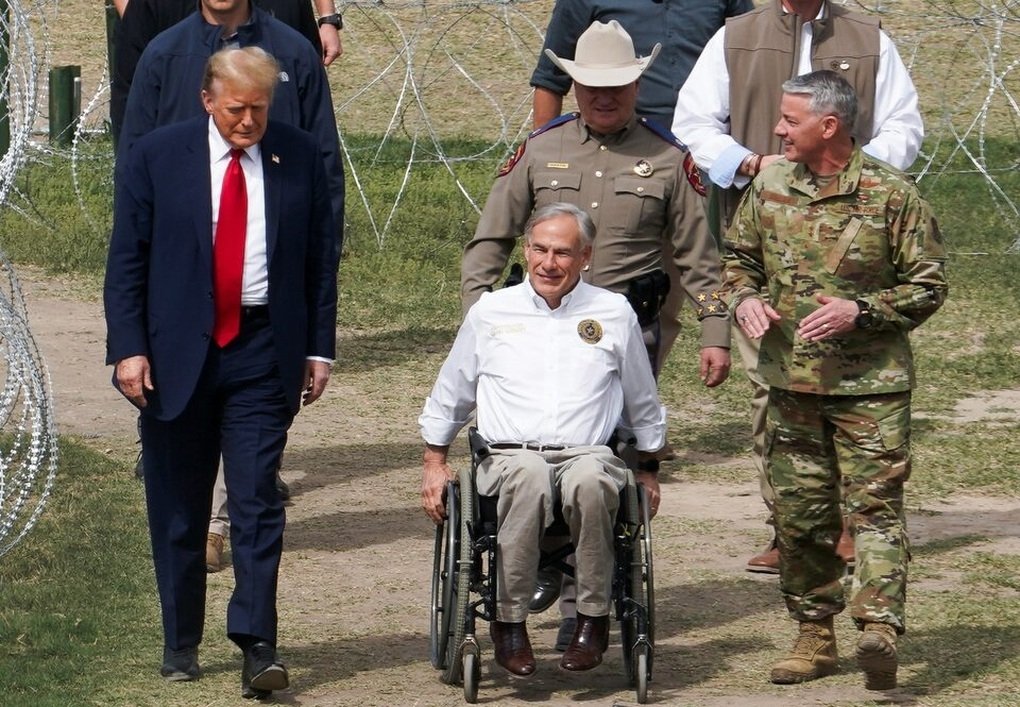(Dan Tri) – Since the 1979 Iranian Islamic revolution, the relationship between Tehran and Tel Aviv has continuously deteriorated, even reaching the brink of war.
Israeli military members stand next to an Iranian missile carcass that fell over the weekend (Photo: AFP).
As the specter of war between Iran and Israel still hangs over the Middle East, it is hard to imagine that just half a century ago, the two countries were close partners.
However, since the Iranian revolution in 1979, relations between the two countries have changed from partners to `frenemies`.
`The Islamic Revolution is a major turning point in modern Iranian history, bringing major changes in both the internal situation and foreign vision. Among the countries considered reprehensible by the revolutionary movement, Israel carries
Partners in history
Under the Pahlavi dynasty in Iran (which ruled before the Islamic revolution), relations between Iran and Israel were relatively friendly.
According to historical researcher Eirik Kvindesland at Oxford University (UK), Tehran’s move is to protect its assets in Israel, as well as protect about 2,000 Iranian citizens living here.
`To break the isolation in the Middle East, (then) Israeli Prime Minister David Ben-Gurion promoted relations with non-Arab countries on the edge of the Middle East,` Mr. Kvindesland told Al Jazeera.
Relations between the two countries experienced a short period of tension after Prime Minister Mohammad Mosaddegh, who had a nationalist ideology, took power in Iran in 1951. The situation only changed after Mr. Mosaddegh was overthrown by Britain and the United States in 1953.
Bilateral relations develop both politically and commercially: Iran is one of the main sources of oil for Israel.
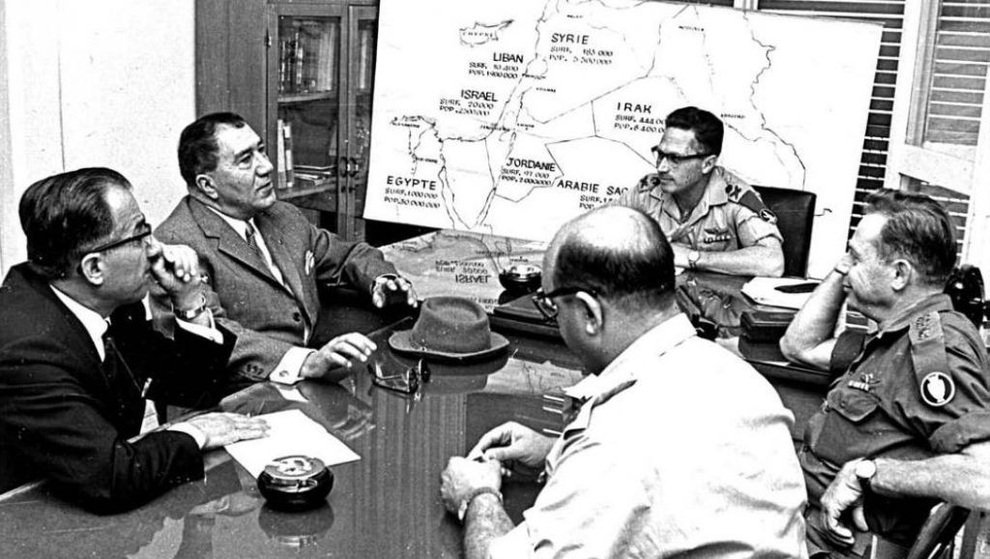
A meeting between Israeli and Iranian military officials in 1975 (Photo: Times of Israel/Wikimedia Commons).
`Israel needs Iran more than Iran needs Israel,` Mr. Kvindesland commented.
Iran’s Islamic Revolution in 1979 completely reversed Iran-Israel relations.
Iran severed diplomatic relations with Israel, canceled direct flights and stopped allowing citizens of both sides to visit each other.
According to Trita Parsi, Executive Vice President of the Quincy Research Institute (USA), Ayatollah Ruhollah Khomeini, Iran’s leader after 1979, wanted to make the Palestinian issue a part of the Islamic movement – instead of just
`To overcome the divide between Arabs and Persians, as well as the Sunni-Shia divide, Iran takes a stronger stance on the Palestinian issue. Through that, they build prestige in the Muslim world as well
Confronting many fronts
As both Iran and Israel sought to consolidate power and influence in the region in the decades that followed, the enmity between the two countries deepened.
In addition to Palestine, Iran is said to also support many regional armed groups in Syria, Iraq, Lebanon and Yemen.
Tensions between Israel and Iran are not only expressed through ideological differences and proxy wars.
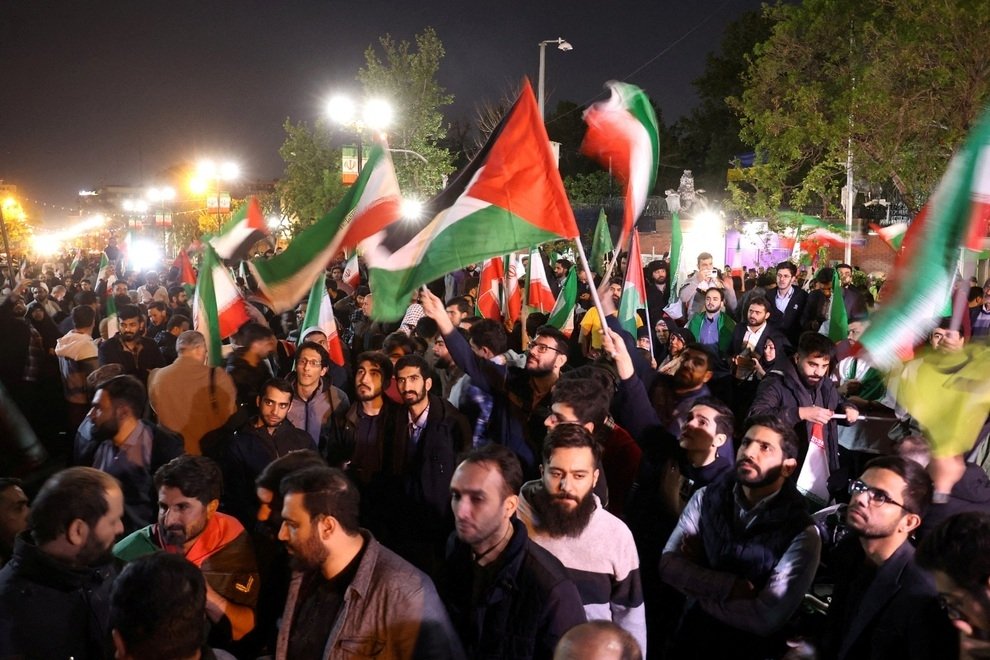
A protest in support of Palestine in Tehran, April 14 (Photo: Reuters).
Iran’s nuclear program is one of the top targets of attack.
Israel and the US are suspected of being behind Stuxnet, a series of computer viruses that caused heavy damage to Iran’s nuclear facilities in the 2000s. These facilities were also attacked many times – Iran claimed Israel was the culprit.
In November 2020, Mr. Mohsen Fakhrizadeh – one of the leading experts – was killed by an automatic machine gun right on an Iranian street.
According to Mr. Parsi, the reasons that united Iran and Israel in the last century – a common concern with Arab nationalism and to some extent the Soviet Union – are no longer there.
`In the competition for dominance and power in the region, the two countries have been dragged into a low-intensity war for more than a decade,` the expert said.
